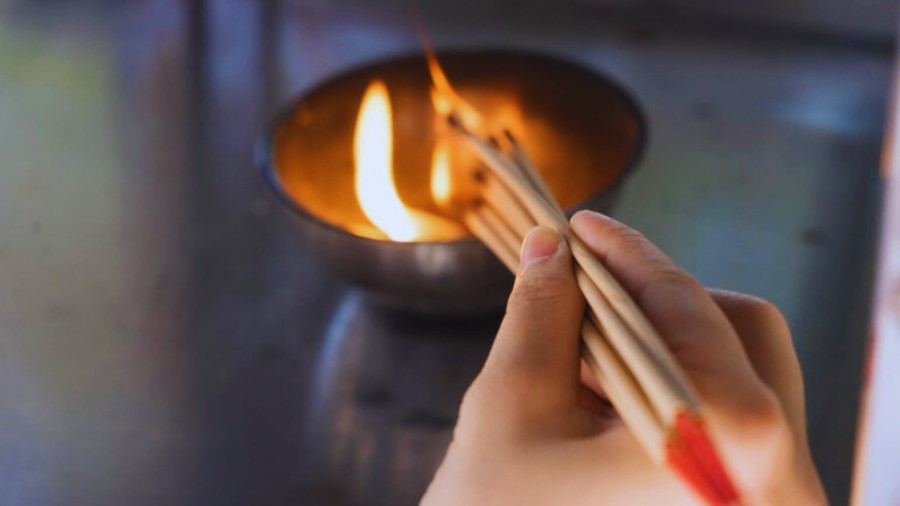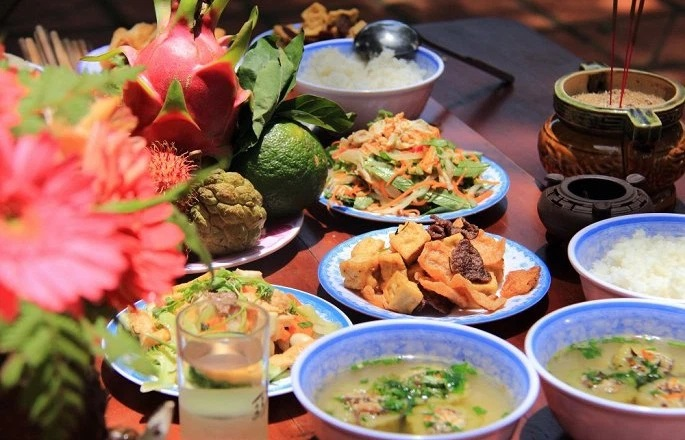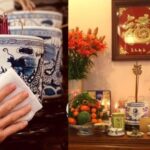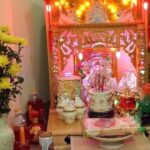The Rằm ceremony is one of the most important monthly rituals for Vietnamese people. Typically, on the 15th day of the lunar month, the household prepares a small offering to be presented on the ancestral altar. This is a beautiful and long-standing tradition.
There are three auspicious time frames on the 15th day of the sixth month to light incense and pray:
Hour of the Cat (5 am-7 am): This early hour signifies new beginnings and is ideal for performing sacred rituals. Praying during this hour brings good fortune and support from benevolent beings, leading to unexpected success.

Three Auspicious Hours for the Rằm Ceremony on the 15th Day of the Sixth Month
Hour of the Horse (11 am-1 pm): This time frame is considered extremely auspicious for the Rằm ceremony. Performing the ritual during this hour ensures that the deities witness your sincerity, bringing prosperity and harmony to your work and life, as well as fulfillment and happiness.
Hour of the Monkey (3 pm-5 pm): Lighting incense during this hour brings good fortune, especially in matters concerning the family.
It is best to offer your prayers during these three auspicious hours. However, if you are unable to do so due to time constraints, you may still offer your prayers at other times as long as you do so sincerely.

Offerings for the Rằm Ceremony
Prayer for the Rằm Ceremony of the Sixth Month:
“Nam mô A Di Đà Phật (Recite three times)
We respectfully bow to: The Emperor of Heaven, the Empress of Earth, and all the deities.
The deities of this region and this land, the Kitchen God, and all other deities.
Our ancestors, [Name of Father], [Name of Mother], and all the deceased family members (if parents are still alive, replace with names of grandparents)
Today is the [date] day of the [month] month of the [year] year in the lunar calendar. We, your descendants, are forever grateful for your grace and the blessings of the heavens and the deities. We have prepared offerings and arranged incense and candles to invite you to this altar.
We respectfully invite: The deities of this region, the Great Kings.
The deities of this land, the Spirits of the Land.
The Kitchen God, the Five Directions, the Dragon Veins, and the God of Wealth.
Please descend upon this altar and witness our sincerity. Accept our offerings.
We also invite our ancestors, [Name of Father], [Name of Mother], and all our deceased family members to witness our sincerity and accept our offerings.
We invite the spirits of previous and current occupants of this house and land to be at peace. May you be free from suffering and enjoy prosperity and tranquility in all seasons and at all times.
We offer our sincere prayers. Please witness our devotion.
Respectfully announced.”





































